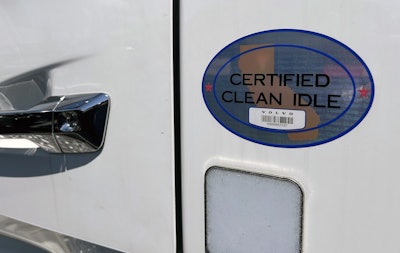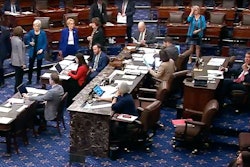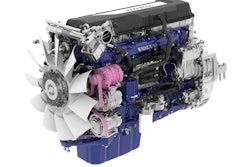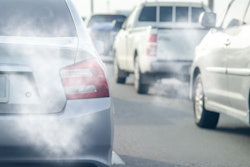
The U.S. House Wednesday evening passed two resolutions that would roll back strict state-level emissions standards enacted by the California Air Resources Board (CARB).
Lawmakers passed House Joint Resolutions 87 and 89, formally providing congressional disapproval under chapter 8 of title 5, United States Code, of the rules submitted by the Environmental Protection Agency relating to California Truck Emission Standards (CARB's Omnibus rule) and California Truck NOx Emission Standards (CARB's Advanced Clean Trucks regulations), respectively.
At the 2025 Technology & Maintenance Council Annual Meeting & Transportation Technology Exhibition in Nashville in March, a panel of experts noted emissions regulations have become a bit of a mess and difficult to manage on a state-by-state basis, and the rules have already affected some fleets' ability to purchase new trucks – diesels and battery electric.
ACT, which has been adopted by 11 states, requires medium- and heavy-duty truck manufacturers to sell increasing percentages of zero-emission vehicles from 2024-2035. The Low NOx Omnibus rule, which has been adopted by 10 states, imposes stringent emissions standards on new truck sales.
"Truck dealers in ACT states are already suffering from California’s disastrous policies," Clean Freight Coalition Executive Director Jim Mullen told CCJ Wednesday night. "If these waivers are not rescinded, it is only a matter of time before the entire trucking industry and supply chain suffers serious negative consequences."
Both measures now head to the Senate, and Mullen encouraged bringing the resolutions to the floor "to complete the rescission of the waivers, restore a single national standard, and prevent further damage to an already struggling trucking industry."
The House action comes just a day after Volvo and Mack Trucks announced plans for CARB compliant diesel engines.
"California should never be given the keys to set policies that impact our interstate supply chains," American Trucking Associations President & CEO Chris Spear said of waivers granted under the Biden administration that allowed California to enact air quality and emissions standards that exceed those passed by the U.S. Environmental Protection Agency.
“Setting national policy is the responsibility of Congress, not California," added Todd Spencer, president of the Owner-Operator Independent Drivers Association (OOIDA). "CARB's overreaching Omnibus NOx rules have already raised prices on new vehicles and increased maintenance costs for trucks currently on the road."
Ongoing emissions battles
Heavy truck emissions have been dragged to Capital Hill several times this year.
U.S. Environmental Protection Agency (EPA) Administrator Lee Zeldin said in March his office would reconsider the federal Greenhouse Gas Emissions Standards for Heavy-Duty Vehicles – Phase 3 (GHG3) final rule, and revisit portions of the Biden-era "Clean Trucks Plan," which includes the 2022 Heavy-Duty Nitrous Oxide (NOx) rule.
Two bills introduced in March in the U.S. Senate seek to amend the Clean Air Act (CAA) to limit or eliminate waivers granted to California allowing the state to adopt and enforce emissions regulations that are stricter than federal regulations.
One bill, reintroduced after failing to advance in the previous Congress, was brought forth by Sen. Markwayne Mullin (R-Oklahoma). The Preserving Choice in Vehicle Purchases Act would limit the Environmental Protection Agency (EPA) from issuing CAA waivers for state policies seeking to ban or otherwise limit the sale of internal combustion engines.
The bill also calls for the EPA to revoke any waiver granted since Jan. 1, 2022, that does not comply with the requirements of the bill. That would include waivers for the California Air Resources Board’s Advanced Clean Trucks and Omnibus Low-NOx rules.
Another piece of legislation – dubbed the Stop California from Advancing Regulatory Burden Act, or Stop CARB Act – was introduced by Sen. Mike Lee (R-Utah), and would repeal California’s Clean Air Act waiver exemption, repeal Section 177 of the Clean Air Act that allows other states to adopt California’s emissions standards, and nullify any active or pending waivers granted to California.










